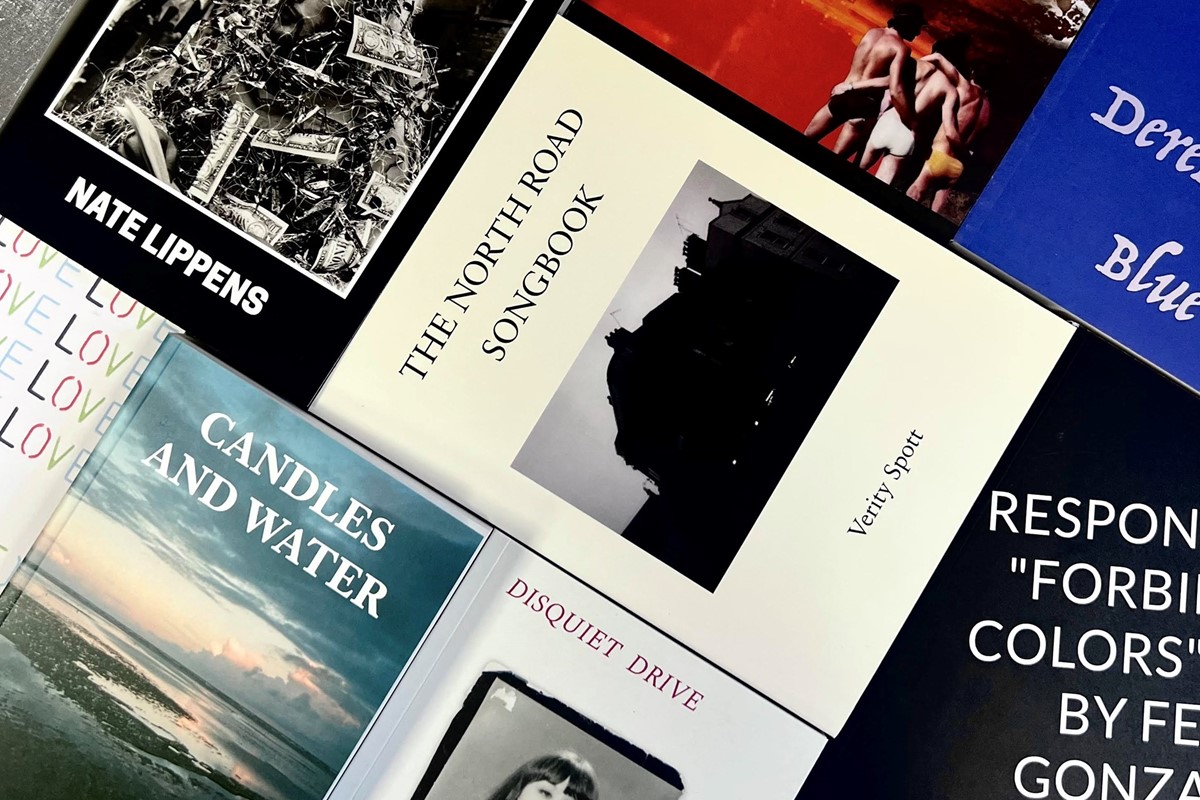
Rewrite
A new wave of indie presses including Worms, Montez Press, Sissy Anarchy, Pilot Press and Sticky Fingers Publishing are offering up much-needed, radical alternatives to big publishing
A thriving indie press scene is good for any creative community: it marks a desire for reflection and digestion. As the mainstream publishing industry is ruled by age-old behemoths, indie presses give vibrant, political communities of artists and writers a way to share their voices. Views or writings that are deemed unpublishable (read: unprofitable) are being cultivated, shared and discussed. Through experiments in fiction, poetry and thought, indie presses are right at the heart of contemporary counterculture, holding the radical voices of the present – the voices big publishing™ daren’t risk touching. To become familiar with the underground, you gotta look at the zines.
Counter to stereotypes of po-faced readings, awkward audiences and unstomachable self-regard, the indie press scene in London right now is hot and sexy. Reading nights are held at rowdy gay bars, and books are being launched at raves in gay cruising grounds (very iconic of you, Smut Press). The last few years have seen an explosion of presses, stewarding a new wave of London literary experimentation that is political, ebullient and raucous. Among the scene, of which these five are only a sliver, much energising activity is happening: Sticky Fingers Publishing forges community around the erotics of knowledge, Pilot Press champions a long tradition of radical queer publishing, Montez Press cultivates the best of artists’ writing, Sissy Anarchy calls for trans-influenced anarchism, and Worms melds the underground with the literary elite.
Below, get to know five of the indie presses at the vanguard of London’s underground literary scene.
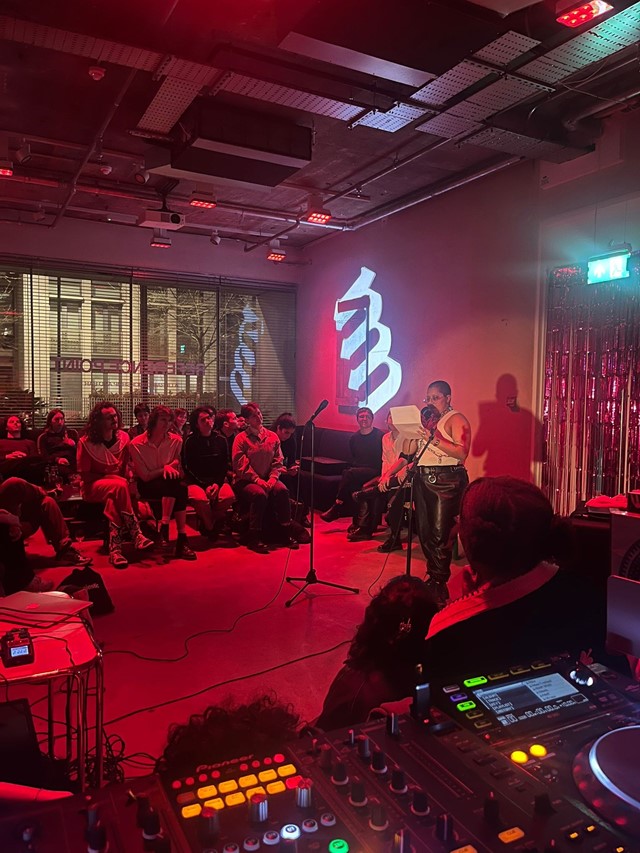
Spurred by queer, feminist and working class perspectives, Montez Press has proved a punk bastion for London’s most innovative art scenes. “We have established ourselves as a vital contributor to artist-led publishing over the last decade, foregrounding and queering experimental auto, fan and speculative fiction” says editor Hasti Crowther, who runs the press with artist Emily Pope. Moving against the increasing cultural isolation of London, Montez Press is motivated by maintaining exchange across the world, with their sister organisation Montez Press Radio, which operates across New York, Mexico City and London, resulting in a unique cross-pollination of hyperlocal communities of artists, musicians and writers.
Montez recently launched their ninth annual Interjection Calendar which, guest edited each year by artists and collectives, facilitates both upcoming and established names to explore new ways of writing. Stacy Skolnik’s dissociative post-pandemic autofiction The Ginny Suite proved a hit, and later this year, Montez will launch a new imprint called Scores in collaboration with London Performance Studio, starting with a play text by artist Sam Cottington.
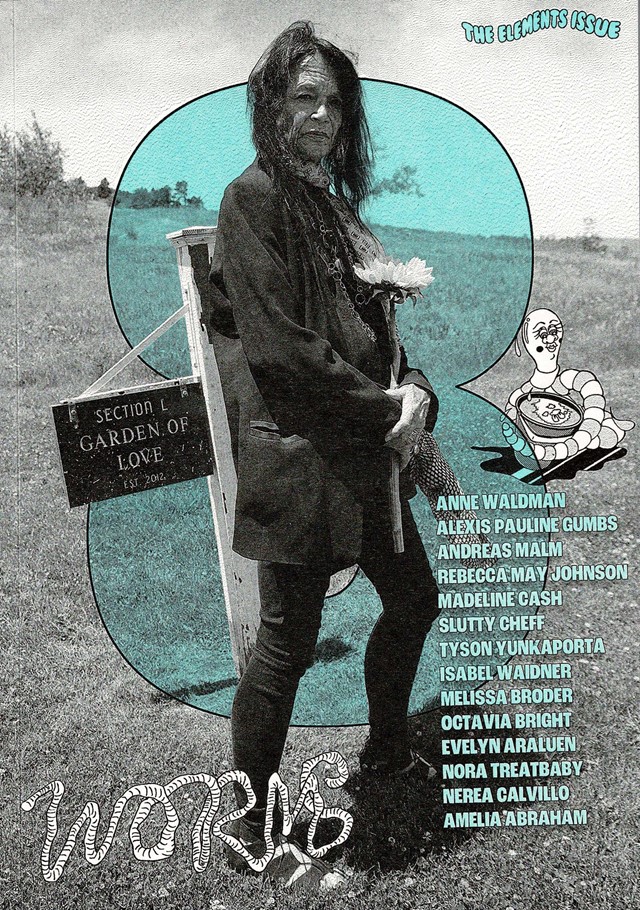
Founded in 2019 by Clem MacLeod, Worms is an independent literary magazine that celebrates women, non-binary and marginalised writer culture. Currently edited by Caitlin McLoughlin, the magazine places underground writers alongside literary and art-world giants from Saidiya Hartman, Michelle Tea and Lynne Tillman to Wu Tsang and Juliana Huxtable. Then there’s their digital platform, The Wormhole, which puts out weekly reading lists, book reviews and articles, their writing course, The Compost Library, run by P Eldridge and MacLeod, and their publishing branch, dedicated to bringing “experimental writers across form and genre to the literary top-soil”.
This summer, they put out Tilly Lawless’s sophomore novel Thora, a YA novel that’s basically “an extra sexy Skins, where a group of teens in New South Wales navigate the complexities of girlhood and uncover a web of secrets that swirl around their secluded life.” Later this year they’ll be dropping their issue nine of their magazine, featuring the likes of Maggie Nelson, Fariha Róisín and Katherine Angel, alongside their first cookbook, Extended Lunch, with chef Mafruha Ahmed. Yummy.
Read our interview with Tilly Lawless here.

London-based artist Richard Porter launched Pilot Press in 2017 after he was “struck by the power of language and community to navigate the difficulty of forging an existence in a city where loneliness, isolation and a sense of powerlessness are often the dominant forces on our lives.” Championing outsiders and DIY approaches, Porter crafts books on Pages documents and spotlights hybrid works that disrupt the binary categories of mainstream publishing. This summer, he’s published Candles and Water by Timothy Thornton, The North Road Songbook by Verity Spott and Disquiet Drive by cult emerging lit-girl Hesse K, whose reassessment of trans subjectivity, the limits of language and political unity in the face of genocide, fascism and class warfare, is circulating among the arts and culture scene like a rare gem. “There’s a subversive thrill in getting these books onto the shelves of prestigious literary bookshops,” says Porter.
Later this year, Pilot Press will publish Nate Lippens’ sophomore work Ripcord, an appropriately punk follow-up to his Republic of Consciousness Prize-nominated My Dead Book. Pilot Press’s underground network of literary punks and rejects will also be brought to the fore in new anthology The Garden Manifesto, guest edited by Olivia Laing, which includes everyone from New York legend Eileen Myles to Prospect Cottage’s gardener Jonny Bruce.
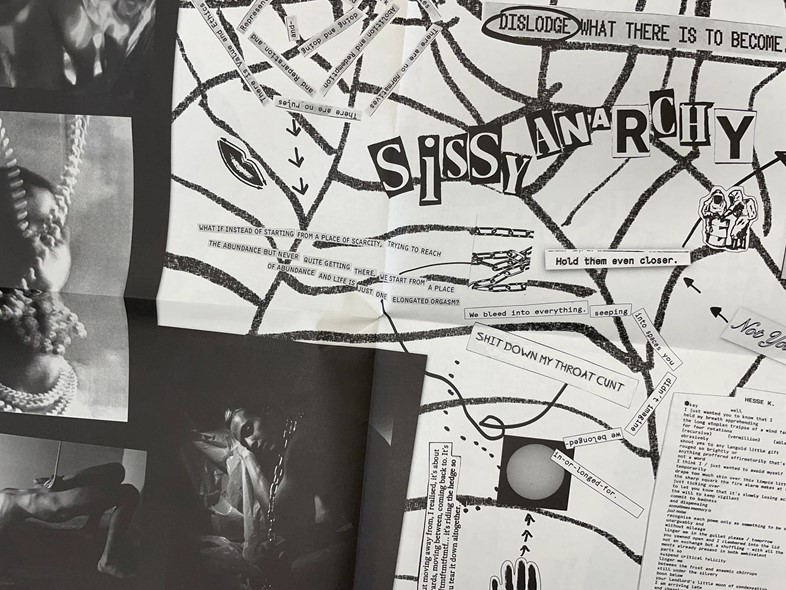
Publishing among a community of trans publishers — Tissue, The BitterSweet Review and Almanac Press, to name a few — Sissy Anarchy is, according to editor P Eldridge, “a multifaceted platform dedicated to exploring the intersection of trans and queer identities with anarchist philosophies.” With help from designer Caitlin McLoughlin, who Eldridge met while working at feminist magazine Worms, the project initially developed as a series of zines that brought constellations of poets, theorists and artists together to consider what a trans-influenced anarchism might look like.
This summer saw Sissy Anarchy publish their first monographs, including Fi Kube’s starkly vulnerable Knots: A Personal Analysis of Sexual Violence and Transmisogyny and Misha Honcharenko’s Trap Unfolds Me Greedily, which balances the author’s experience as a Ukrainian refugee doing care work for a dying parent while dealing with their burgeoning queer desire. “Though London is mired in class, inequality, and a desperate clinging to outdated norms, there’s a raw, unfiltered energy in the DIY spaces, a hunger to dismantle the old order,” says Eldridge. “We’re making a mess whilst fucking, screaming and looking cunt.”
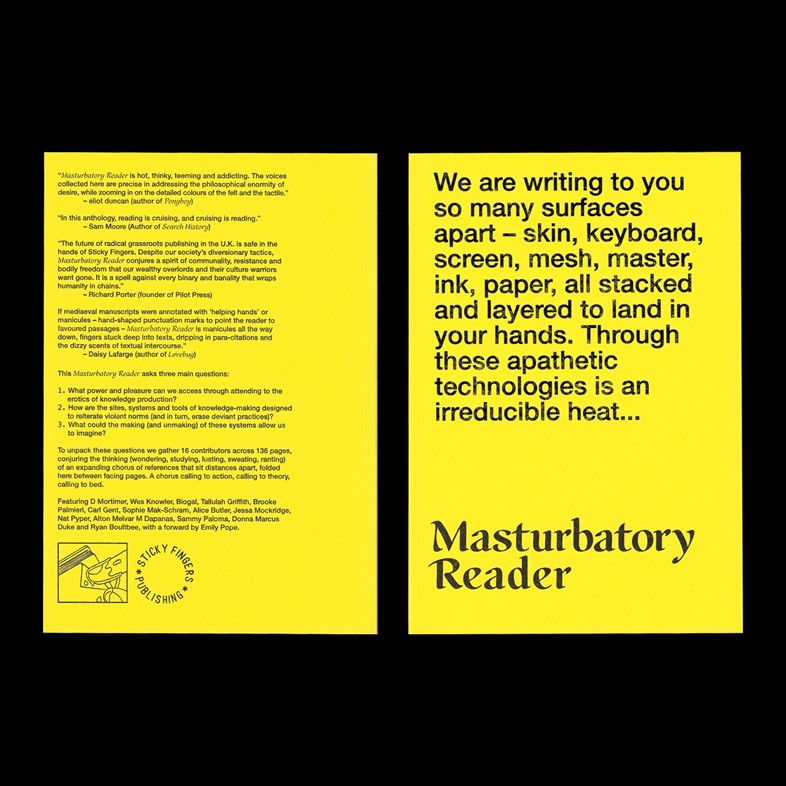
Sticky Fingers Publishing is an intra-dependent feminist press based in south-east London, founded by Sophie Paul and Kaiya Waerea. Sharing a concern for “what knowledge feels like”, the pair publish risky, experimental collisions between fiction, theory and political thought. Recently, they’ve put out monographs, like Amy Etehrington’s sad trans girl theory or Sam Moore’s obsession with Grand Designs, and anthologies, like their new Get Rid of Meaning Series or their community magnum opus, The Maturbatory Reader, which explores everything from the erotics of knowledge production to why libraries are so damn sexy.
Pillars of the scene, Sticky Fingers are always bringing their community together. This year they started their own book fair, showcasing younger presses alongside the scene’s most established. Then there’s their parties, hosted in east London dive bars like The Divine or VFD, which provide chaotic sites where texts meet nightlife, revivifying the overly-serious traditions of reading events. Their next party is on September 17 at the Hackney Showroom, where they’ll launch D Mortimer’s monograph Speed Glum Hero, which explores mental distress, substance, butchness, friendship and survival.
in HTML format, including tags, to make it appealing and easy to read for Japanese-speaking readers aged 20 to 40 interested in fashion. Organize the content with appropriate headings and subheadings (h1, h2, h3, h4, h5, h6), translating all text, including headings, into Japanese. Retain any existing
tags from
A new wave of indie presses including Worms, Montez Press, Sissy Anarchy, Pilot Press and Sticky Fingers Publishing are offering up much-needed, radical alternatives to big publishing
A thriving indie press scene is good for any creative community: it marks a desire for reflection and digestion. As the mainstream publishing industry is ruled by age-old behemoths, indie presses give vibrant, political communities of artists and writers a way to share their voices. Views or writings that are deemed unpublishable (read: unprofitable) are being cultivated, shared and discussed. Through experiments in fiction, poetry and thought, indie presses are right at the heart of contemporary counterculture, holding the radical voices of the present – the voices big publishing™ daren’t risk touching. To become familiar with the underground, you gotta look at the zines.
Counter to stereotypes of po-faced readings, awkward audiences and unstomachable self-regard, the indie press scene in London right now is hot and sexy. Reading nights are held at rowdy gay bars, and books are being launched at raves in gay cruising grounds (very iconic of you, Smut Press). The last few years have seen an explosion of presses, stewarding a new wave of London literary experimentation that is political, ebullient and raucous. Among the scene, of which these five are only a sliver, much energising activity is happening: Sticky Fingers Publishing forges community around the erotics of knowledge, Pilot Press champions a long tradition of radical queer publishing, Montez Press cultivates the best of artists’ writing, Sissy Anarchy calls for trans-influenced anarchism, and Worms melds the underground with the literary elite.
Below, get to know five of the indie presses at the vanguard of London’s underground literary scene.

Spurred by queer, feminist and working class perspectives, Montez Press has proved a punk bastion for London’s most innovative art scenes. “We have established ourselves as a vital contributor to artist-led publishing over the last decade, foregrounding and queering experimental auto, fan and speculative fiction” says editor Hasti Crowther, who runs the press with artist Emily Pope. Moving against the increasing cultural isolation of London, Montez Press is motivated by maintaining exchange across the world, with their sister organisation Montez Press Radio, which operates across New York, Mexico City and London, resulting in a unique cross-pollination of hyperlocal communities of artists, musicians and writers.
Montez recently launched their ninth annual Interjection Calendar which, guest edited each year by artists and collectives, facilitates both upcoming and established names to explore new ways of writing. Stacy Skolnik’s dissociative post-pandemic autofiction The Ginny Suite proved a hit, and later this year, Montez will launch a new imprint called Scores in collaboration with London Performance Studio, starting with a play text by artist Sam Cottington.

Founded in 2019 by Clem MacLeod, Worms is an independent literary magazine that celebrates women, non-binary and marginalised writer culture. Currently edited by Caitlin McLoughlin, the magazine places underground writers alongside literary and art-world giants from Saidiya Hartman, Michelle Tea and Lynne Tillman to Wu Tsang and Juliana Huxtable. Then there’s their digital platform, The Wormhole, which puts out weekly reading lists, book reviews and articles, their writing course, The Compost Library, run by P Eldridge and MacLeod, and their publishing branch, dedicated to bringing “experimental writers across form and genre to the literary top-soil”.
This summer, they put out Tilly Lawless’s sophomore novel Thora, a YA novel that’s basically “an extra sexy Skins, where a group of teens in New South Wales navigate the complexities of girlhood and uncover a web of secrets that swirl around their secluded life.” Later this year they’ll be dropping their issue nine of their magazine, featuring the likes of Maggie Nelson, Fariha Róisín and Katherine Angel, alongside their first cookbook, Extended Lunch, with chef Mafruha Ahmed. Yummy.
Read our interview with Tilly Lawless here.

London-based artist Richard Porter launched Pilot Press in 2017 after he was “struck by the power of language and community to navigate the difficulty of forging an existence in a city where loneliness, isolation and a sense of powerlessness are often the dominant forces on our lives.” Championing outsiders and DIY approaches, Porter crafts books on Pages documents and spotlights hybrid works that disrupt the binary categories of mainstream publishing. This summer, he’s published Candles and Water by Timothy Thornton, The North Road Songbook by Verity Spott and Disquiet Drive by cult emerging lit-girl Hesse K, whose reassessment of trans subjectivity, the limits of language and political unity in the face of genocide, fascism and class warfare, is circulating among the arts and culture scene like a rare gem. “There’s a subversive thrill in getting these books onto the shelves of prestigious literary bookshops,” says Porter.
Later this year, Pilot Press will publish Nate Lippens’ sophomore work Ripcord, an appropriately punk follow-up to his Republic of Consciousness Prize-nominated My Dead Book. Pilot Press’s underground network of literary punks and rejects will also be brought to the fore in new anthology The Garden Manifesto, guest edited by Olivia Laing, which includes everyone from New York legend Eileen Myles to Prospect Cottage’s gardener Jonny Bruce.

Publishing among a community of trans publishers — Tissue, The BitterSweet Review and Almanac Press, to name a few — Sissy Anarchy is, according to editor P Eldridge, “a multifaceted platform dedicated to exploring the intersection of trans and queer identities with anarchist philosophies.” With help from designer Caitlin McLoughlin, who Eldridge met while working at feminist magazine Worms, the project initially developed as a series of zines that brought constellations of poets, theorists and artists together to consider what a trans-influenced anarchism might look like.
This summer saw Sissy Anarchy publish their first monographs, including Fi Kube’s starkly vulnerable Knots: A Personal Analysis of Sexual Violence and Transmisogyny and Misha Honcharenko’s Trap Unfolds Me Greedily, which balances the author’s experience as a Ukrainian refugee doing care work for a dying parent while dealing with their burgeoning queer desire. “Though London is mired in class, inequality, and a desperate clinging to outdated norms, there’s a raw, unfiltered energy in the DIY spaces, a hunger to dismantle the old order,” says Eldridge. “We’re making a mess whilst fucking, screaming and looking cunt.”

Sticky Fingers Publishing is an intra-dependent feminist press based in south-east London, founded by Sophie Paul and Kaiya Waerea. Sharing a concern for “what knowledge feels like”, the pair publish risky, experimental collisions between fiction, theory and political thought. Recently, they’ve put out monographs, like Amy Etehrington’s sad trans girl theory or Sam Moore’s obsession with Grand Designs, and anthologies, like their new Get Rid of Meaning Series or their community magnum opus, The Maturbatory Reader, which explores everything from the erotics of knowledge production to why libraries are so damn sexy.
Pillars of the scene, Sticky Fingers are always bringing their community together. This year they started their own book fair, showcasing younger presses alongside the scene’s most established. Then there’s their parties, hosted in east London dive bars like The Divine or VFD, which provide chaotic sites where texts meet nightlife, revivifying the overly-serious traditions of reading events. Their next party is on September 17 at the Hackney Showroom, where they’ll launch D Mortimer’s monograph Speed Glum Hero, which explores mental distress, substance, butchness, friendship and survival.
and integrate them seamlessly into the new content without adding new tags. Ensure the new content is fashion-related, written entirely in Japanese, and approximately 1500 words. Conclude with a “結論” section and a well-formatted “よくある質問” section. Avoid including an introduction or a note explaining the process.


